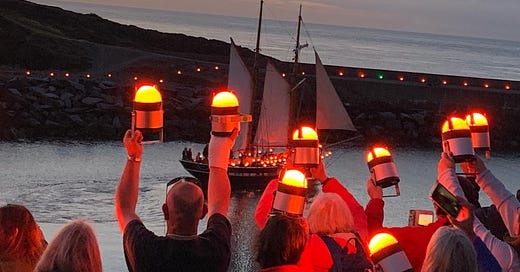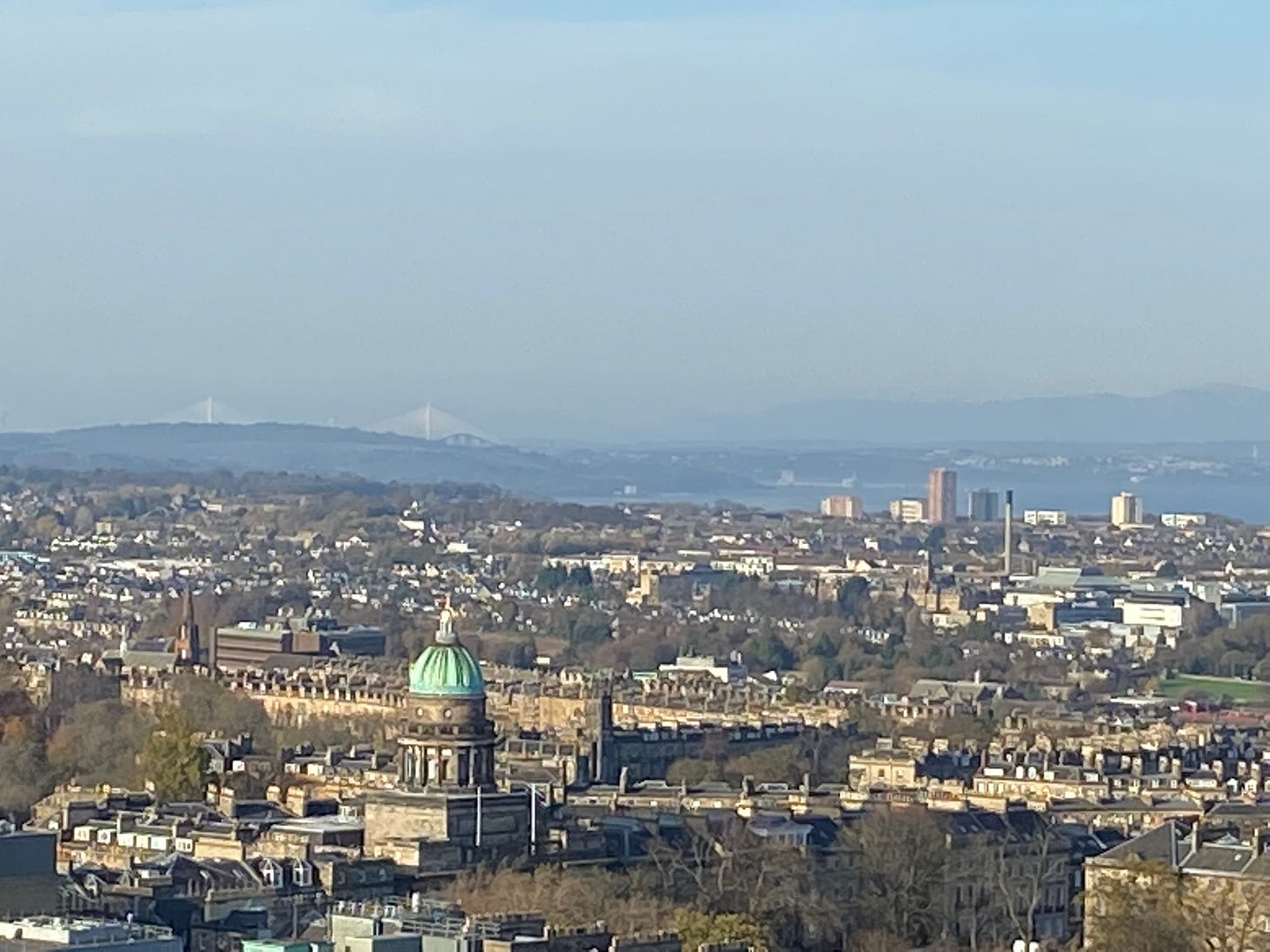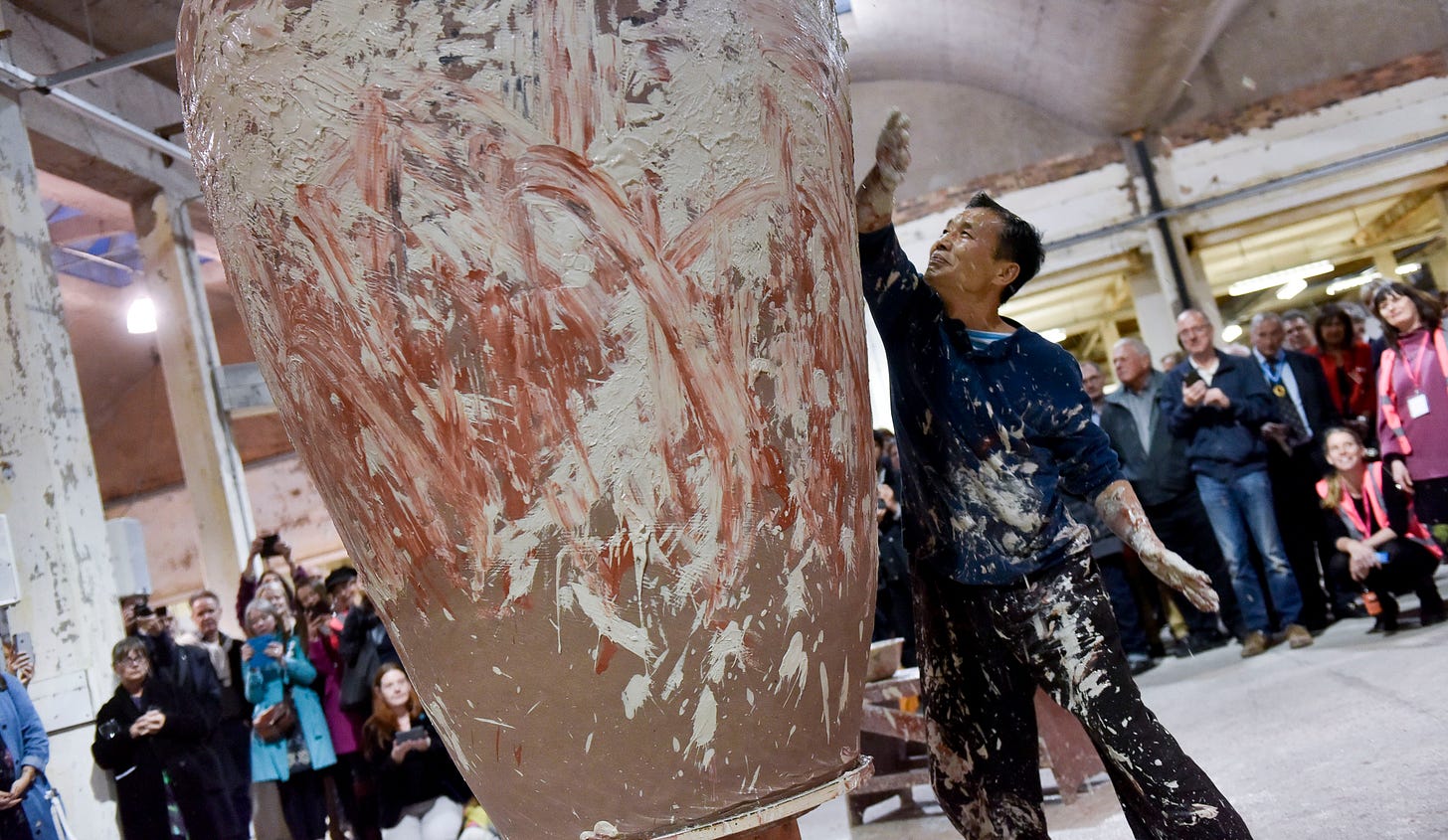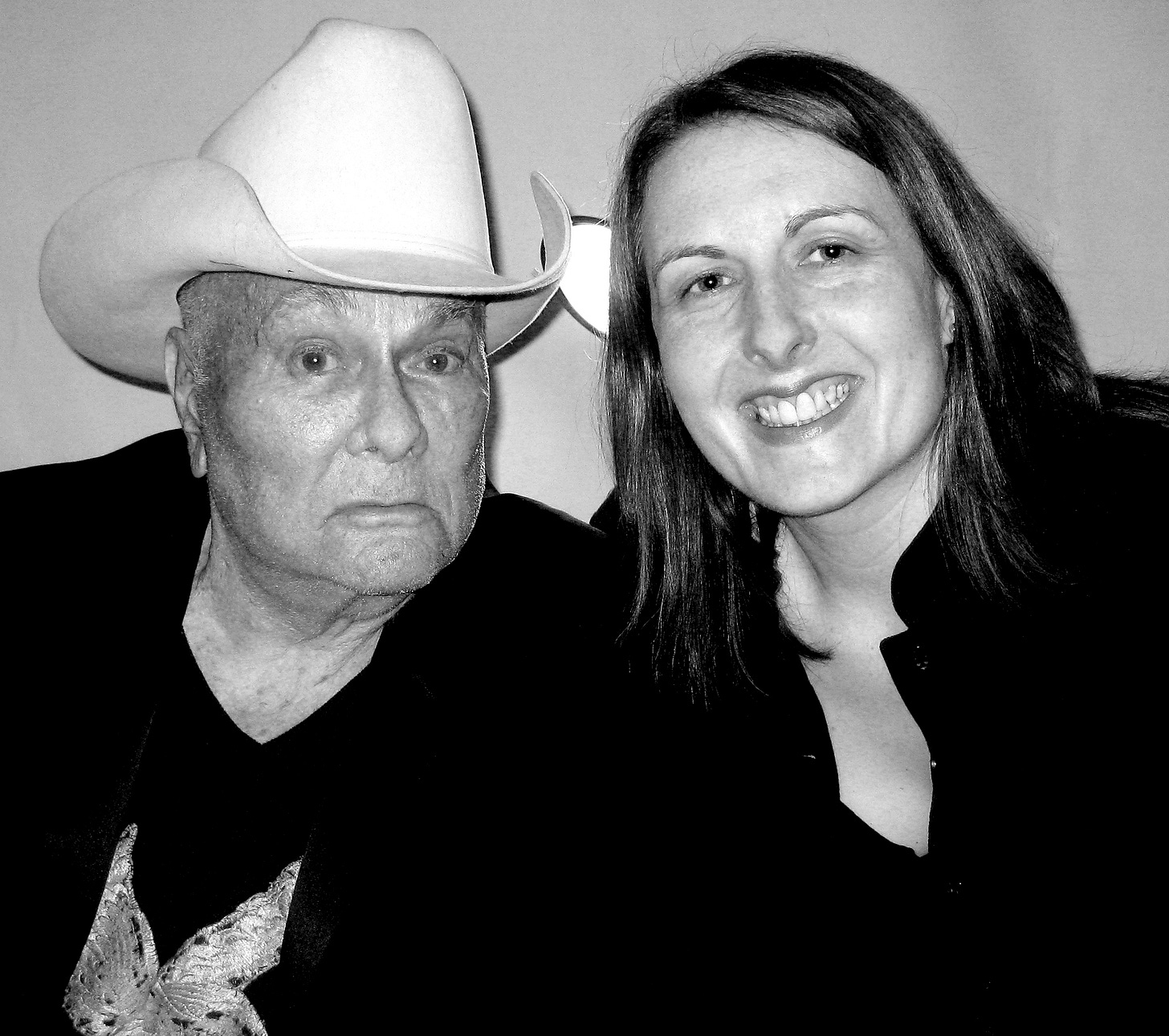Working on a festival is like nothing else I’ve experienced in my long career in the arts.
It’s exhilarating and exhausting, gratifying and gruelling, fun and frustrating…, I could go on, you get the idea.
So, I thought I’d start writing a monthly newsletter focusing on what’s happening in the world of festivals; though to be clear, I’ll mainly be focusing on arts-led festivals but will stray into film (a personal passion and I’ve got to put that PhD in film to some use), and probably music, science, nature but only where there’s equally strong arts programming. As I’m based in the UK, there will be a UK bias, but as someone who seeks out festivals wherever I travel, I’ll be looking at international festivals too.
Where it all started
I first got the taste for festival life from working at the Edinburgh Festival Fringe in the early 1990s. I had one of those impressionable experiences that made the national broadsheets and television news, and not for positive reasons. It wasn’t one of those stories about plucky youngsters doing what it takes to get a foot in the industry door; no, it was a story about how young people were being exploited in their quest to gain valuable work experience.
I had answered an advert in The Stage newspaper and joined a team of the equally ill-prepared, converting a Masonic Hall in Leith into a temporary Fringe venue. The headline show was a musical about Helen Keller (I kid you not!)[1]. Not only that, but the whole venue team and performers stayed in a cockroach-infested barn - at least fifty of us lined up in two rows along the floor in our sleeping bags sharing two bathrooms - over the other side of the city near the Firth of Forth bridge. And we didn’t earn a penny! And just to clarify for those who don’t know Edinburgh, this was way before money poured into Leith for its urban regeneration and where the former Royal Yacht Britannia is now moored; think more like Trainspotting...
Edinburgh city centre with the Firth of Forth bridge in the background
But I did fall in love with Edinburgh and the Fringe, particularly how you could seemingly encounter arts on every corner, or that’s what it felt like to a recent graduate keen to work in the sector. I was determined to see as many shows as I could, mostly blagging freebies from other venue staff, and running from one venue to another to absorb as much of the festival atmosphere as possible in four weeks. I was inspired to return the following year and successfully secured a paid position at the Gilded Balloon Theatre, and my festival seed was fully sown.
Festival addiction
I’ve been lucky to work on so many festivals that have broadened my understanding of different artforms, how artists are inspired to create new work, what audiences respond to, and don’t, and I’ve gained amazing friends through what we call ‘shared festival trauma’.
So, a little bit about my accidental festival credentials. After working in theatre for a few years, I ventured into the world of freelance work. I was approached to pitch for a six-month contract to start the process of developing a cultural programme for Manchester’s 2002 Commonwealth Games. Little did I know that six months would extend to over three years building then delivering Cultureshock, though technically a cultural programme, it did include numerous new and existing festivals.
As a result, I was asked by Manchester City Council to work on a new festival concept as a direct legacy of Cultureshock and the Commonwealth Games. Again, a six-month contract extended to over four years’ work on what became Manchester International Festival. I was the Marketing Director for the inaugural festival in 2007. During that time, I was also part of a team that set up Asia Triennial Manchester and worked on three editions with my former business partner, but still my brother, Andrew.
Following Manchester International Festival I was approached about a new contemporary ceramics festival idea for Stoke-on-Trent - British Ceramics Biennial - and ended up working on five editions across a decade as the Joint Marketing Director with Andrew. And at the same time, I couldn’t resist taking on the strategic marketing for Liverpool Biennial in 2008 during the city’s European Capital of Culture year, and then returning for a second time eight years later.
British Ceramics Biennial 2017 Launch
I spent a few years on the board of Manchester Jazz Festival, and QueerUpNorth (the latter no longer in existence), worked with Science and Industry Museum on Manchester Science Festival, advised FutureEverything in its initial incarnation as Futuresonic, chaired Manchester Festivals Forum, delivered marketing and communications training for Birmingham Festivals Forum, Worcester Festivals, Tees Valley Festivals and advised Liverpool Festivals Forum, SICK! Festival in Manchester, Ilkley Literature Festival, and led the marketing for EuroPride 2003 in my home city of Manchester. Though not really a festival, I worked with Walk the Plank on their UNBOXED commission Green Space Dark Skies, but that’s a story for another time…
Green Space Dark Skies 2022, Walk the Plank, Porth Amlwch, Anglesey
Roll on a few decades and I look back on my career to date and think there must be a masochistic streak in me that gets a kick from working in highly stressful, unorthodox environments. Especially when I consider that success is rarely attributed to the work I do, but if something goes wrong, well, it’s likely the finger is pointed in my direction. Did I mention I work in marketing and communications?!
There’s a bond that develops in festival teams that I’ve only found before from my experience of working in theatre. That feeling of the team railing against the world, wrestling to tame an unruly beast before it is unleashed into the public domain; followed by the high-octane adrenalin rush that somehow sees you through the highs and lows of huge successes and crisis management, till you can legitimately collapse at the end. I know of one festival where the Festival Director insisted everyone take a month off after the festival, such was the intensity of the work.
So what’s the attraction?
We’ve seen an explosion in the number of festivals taking place in urban, rural, and coastal settings (and possibly an over-saturation in the market for outdoor commercial music festivals?): from boutique-themed to hugely commercial, from one-offs to annual/biannual and even triennial, from community celebration to religious holidays, the list goes on. We’ve also seen ambitious festivals that have crashed and burned taking festival-goers’ money and goodwill along with them and making headlines around the world.
But we keep coming back for more. As festival attenders, it’s that collective effervescence you can only feel by being together in person at the same time sharing an experience that creates lasting memories. And for those of us working on festivals, well there is an undeniable buzz that comes from shaping something new each time, keeping programmes secret till a big reveal, delighting in watching audiences enjoying what you’ve collectively worked so hard to create, waiting for the reviews to come in. And then there’s the praying to the weather gods that it’s not too hot / too cold / raining / stormy, dealing with train strikes, a pandemic, funding withdrawals or finding asbestos in the main festival building days before launch, and, and, and…
What to expect each month
I’ll explore different themes each month and look at how festivals are responding to global and local challenges, whether that’s climate change, the political landscape, mega events, local engagement with residents, social and economic impact, research, tourism, branding; it’s a long list. Of course, I’ll always be looking at the topic through an audience lens. And I’ll be selecting my upcoming festival highlights. I may even share some of my experiences along the way, though names will be changed to protect the guilty innocent.
Here's some festival news that caught my eye recently:
UK Festival News
The last few months have sadly seen a slew of festival cancellations with an increasing number announcing a postponement or complete closure this year, citing rising costs as the reason, such as Bradford’s Bingley Festival. It’s the same for many commercial music festivals such as Nibley Festival in the Cotswolds running its last festival this year, and Cheshire’s music and science festival Bluedot, amongst others taking a break in 2024.
Derby Feste has cancelled its 2024 edition due to the cost-of-living crisis and rising overhead costs but aims to return in 2025.
Glasgow’s two literary festivals Aye Write and Wee Write have been cancelled following unsuccessful funding applications to Creative Scotland. Glasgow Life who run the festivals will organise some pop-up events this year and try again for funding next year. Although Aye Write has received an unexpected donation of £65,000 to fund pop-up author events throughout this year.
Vault Festival, the fringe festival known for supporting artists who have been failed and disenfranchised by funding, education and institutional systems, has had to close after it was unable to find funding for a new central London home. Vault Creative Arts plan to ‘keep the spirit’ of the festival going at its venue, The Glitch in Waterloo.
In more positive news
Outdoor Arts UK Festival Focus 2024 is a professional development opportunity for those working in or considering working in outdoor arts to join a small cohort to attend three festivals across the UK – Out There Festival in Great Yarmouth, Winchester Hat Fair and Stockton International Riverside Festival. Deadline 7 May.
The UK’s first major Muslim international film festival announced its programme, opening on 30 May.
There will be a change of leadership at Brighton Dome and Festival as Chief Executive Andrew Comben leaves to become Chief Executive of Britten Pears Arts from September. All change at the world’s longest running music festival Three Choirs Festival in Worcester too as Chief Executive Alexis Paterson announces her departure to become Senior Music Programme Producer at Oxford University’s Cultural Programme.
International Festival News
And the festival cancellations are not restricted to the UK:
Tasmania’s long running annual summer Mona Foma has called it a day, citing ‘the spell has worn off’.
Cleveland’s Art Triennial FRONT has announced the cancellation of its 2025 edition and it will permanently wind down operations.
On a brighter note
The biannual Music Biennale in Zagreb, Croatia will return in 2025. Congratulations to my friend Fanny Martin who has just taken up the reins as their first International Executive Director.
May signals the start of peak festivals season (well in the UK anyway!) with many literary, multi-artform, outdoor, film and jazz festivals.
Here are some of my upcoming highlights:
UK Festival Highlights
Hay Festival – I’ll never forget meeting legendary screen actor Tony Curtis at a book signing after listening to his hilarious, star-studded stories that even a thunderstorm, which cut the power in the marquee couldn’t interrupt. Now there’s HowTheLightGetsIn also at Hay-on-Wye, billed as ‘the world’s greatest festival of philosophy and music’. Plus there’s Bude Literary Festival in its stunning Cornwall setting overlooking the sea.
A very excited me with the legendary film star Tony Curtis at Hay Festival 2009.
Manchester Jazz Festival, and look out for their piano trail across the city centre. There’s also the biannual Cheltenham Jazz Festival curated by Gregory Porter, and who can resist the infectious rhythms of the Gypsy Jazz Festival in London.
The best theatre and dance for children and families at Edinburgh International Children’s Festival.
Liverpool’s Leap dance festival, returned in April after a long hiatus and is still running till 10 May.
Bring the Paint International Street Art festival in Leicester, plus skateboarding, breakdancing, BMX, live music and exhibitions.
The longest running arts festival in the UK - Norfolk and Norwich Festival.
Bristol’s Mayfest international festival of contemporary theatre and live performance, and nearby is Bath Festival for music and literature.
Brighton Festival’s ‘three-week celebration of Hope, Wonder, Magic and Fun’ and its sister festival Brighton Fringe with over 600 events.
Salisbury International Festival returns with a major parade through the city centre on its opening weekend.
Gateshead International Festival of Theatre is North East England’s premier platform for contemporary theatre.
The early May bank holiday weekend features Scarborough Streets, a three-day festival of outdoor events, street art, performances and workshops; whilst the end of the month sees Great Yarmouth’s international festival of free, outdoor arts and circus Out There Festival kick off on 30 May.
In my neck of the woods, there’s the first ever Middlewood Locks Fest to celebrate the reopening of parts of the Manchester, Bolton and Bury Canal for the first time in 15 years, featuring work produced by my former client, outdoor arts specialists, Walk the Plank. This year SICK! Festival is curated in collaboration with residents in North Manchester where the festival will take place as well as online, and the international festival WOW Women of the World, takes over Manchester’s Aviva Studios for three days.
International Festival Highlights
The movers and shakers in the contemporary visual art world descended on Venice last week which can only mean one thing - the 60th Venice Biennale is in full swing, and great to see wins for indigenous artists, the Mataaho Collective (main exhibition) and Archie Moore (Australian Pavilion). But it’ll now cost you 5 Euros just to enter the city as a day visitor.
It’s a big month for film with the 77th Cannes Film Festival – and the Honorary Palme d’Or goes to… a studio for the first time – Studio Ghibli.
One of the world’s biggest documentary film festivals - Hot Docs International Documentary Film Festival in Toronto, on till 5 May.
The 20th edition of the European Night of the Museums on 18 May – Stumbling into Madrid’s Night of the Museums on arrival in the city for a week’s holiday was a truly magical and memorable experience. Remember to wear white!
Ireland’s leading literary event - Dublin International Literature Festival.
Over 300 artists across 70 locations feature in Amsterdam Art Week.
The first and longest running professional performing arts festival for young audiences in North America and Europe - Vancouver International Children’s Festival.
And finally, in Morocco’s spiritual capital, the Fez Festival of World Sacred Music opens on 24 May.
If you’ve enjoyed reading this newsletter (they won’t all be this long, I promise!) and think anyone you know will be interested in joining the mailing list, please do nudge them to subscribe. I’d also love to hear your feedback.
And, for those of you wondering how you ended up on this list, well I had to start somewhere, so I started with family, friends, and trusted colleagues. But if you’d rather not read my monthly musings about festivals, you can hit the unsubscribe button, I won’t be offended – though it may result in you dropping off my Christmas card list. 😉
See you next month for more festival news, stories, and insights.
[1] Helen Keller, 1880-1968, lost her sight and hearing as a toddler but went on to become a celebrated author, political activist, lecturer and disability rights advocate in America.









This is fab Helen. Those memories of the first MIF will be imprinted in my soul for ever ( the good, the bad and ugly). I look forward to the next one.
Festivals - a topic dear to my heart. What a great newsletter, packed with so many gems. With Helen’s incredible experience and expertise at the helm, I’ll definitely be coming back for more…